WinWithAI : A Sales Head's Insight into AI's Transformative Roles
Artificial Intelligence (AI) and its advanced counterpart, Generative AI (Gen AI), are reshaping the landscape of sales, offering unprecedented opportunities for organizations to enhance their strategies and drive growth. In today's digital-first world, the potential of AI in transforming sales and marketing processes cannot be overstated. Forward-thinking C-suite leaders recognize the significance of integrating AI into their operations to stay ahead of the competition and meet the evolving needs of their customers.
According to a recent Bain & Company survey of more than 550 enterprises worldwide, use cases in sales, marketing, and customer support are among those getting the most uptake. Roughly 40% of respondents have adopted or are evaluating the technology (Figure 1)
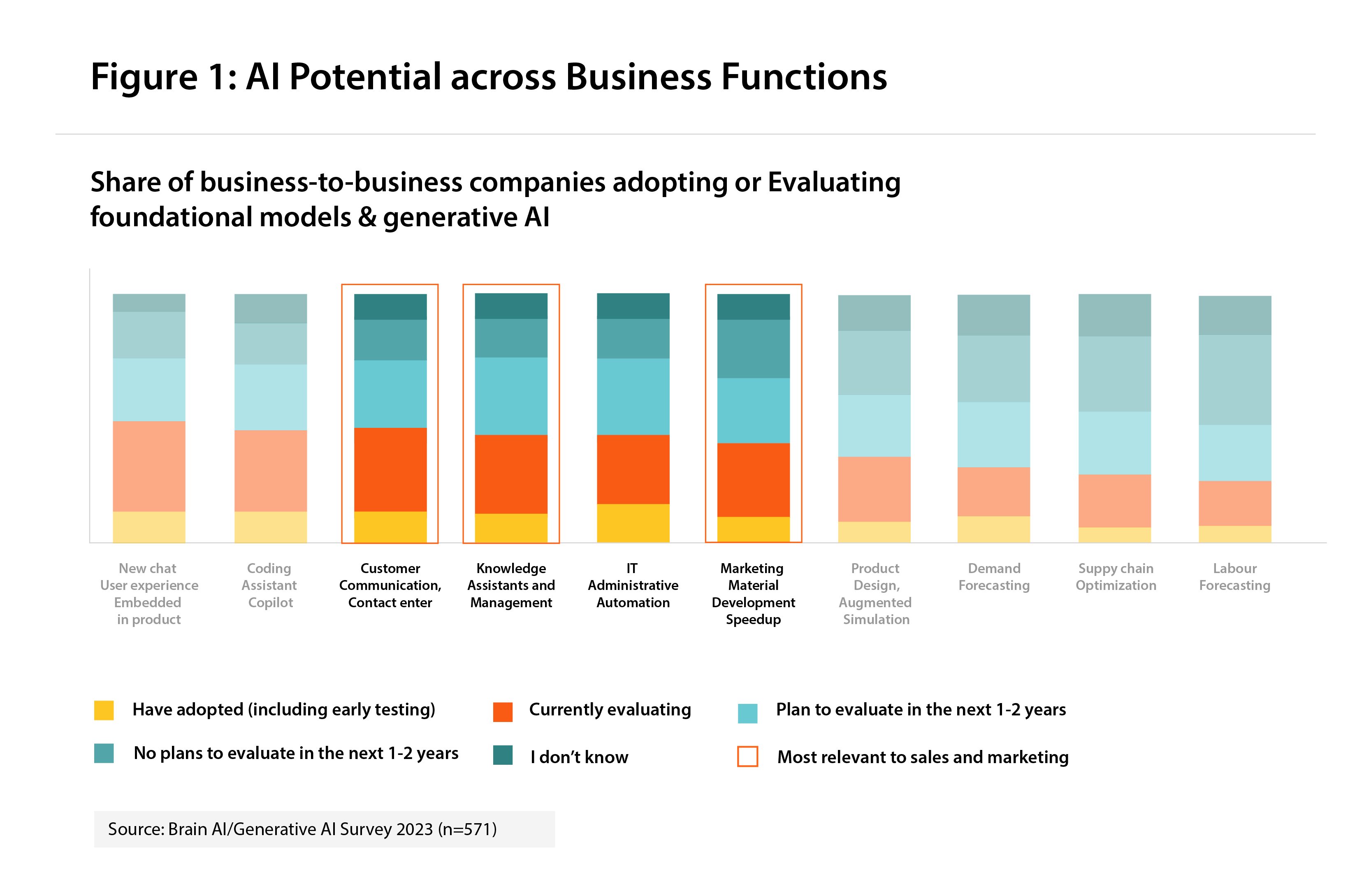
Figure 1: AI Potential across Business Functions
In this newsletter, we delve into the transformative power of AI in sales, exploring its potential impact on lead identification, personalized outreach, and overall sales effectiveness. We further highlight why sales managers are turning to AI and the business benefits it can drive.
What does Gen AI mean for Sales Heads?
Generative AI holds the promise of becoming every salesperson's indispensable digital assistant, offering a multitude of benefits across various aspects of sales organizations.
Before addressing the how, consider what generative AI can do for sales organizations.
- Reversing Administrative Creep: Organizations often face the challenge of administrative tasks overtaking valuable selling time. Generative AI can alleviate this burden by assisting salespeople in tasks such as email writing, proposal responses, note organization, and CRM data updates, thereby reversing the trend of administrative creep and allowing sales teams to focus on revenue-generating activities.
- Enhancing Salespeople’s Customer Interactions: Generative AI helps in recommending personalized content and product offers, along with the best channel for salespeople to connect with customers. It considers customer sentiments gleaned from language nuances, making the application easy to use in a collaborative seller-buyer environment.
- Assisting Sales Managers: Generative AI makes reporting systems more powerful and forward-looking. It enables managers to pose questions, get insights for helping salespeople improve, and deliver more pointed coaching feedback. Sales planning tasks that took weeks can now be performed in an hour.
The rise of AI, and particularly Gen AI, has potential for impact in three areas sales: customer experience (CX), growth, and productivity.
For example, in CX, hyper-personalized content and offerings can be based on individual customer behavior, persona, and purchase history. Growth can be accelerated by leveraging AI to jumpstart top-line performance, giving sales teams the right analytics and customer insights to capture demand. Additionally, AI can boost sales effectiveness and performance by offloading and automating many mundane sales activities, freeing up capacity to spend more time with customers and prospective customers (while reducing cost to serve).
Figure 2 highlights the outcomes that businesses can derive with AI integration across the three key areas.
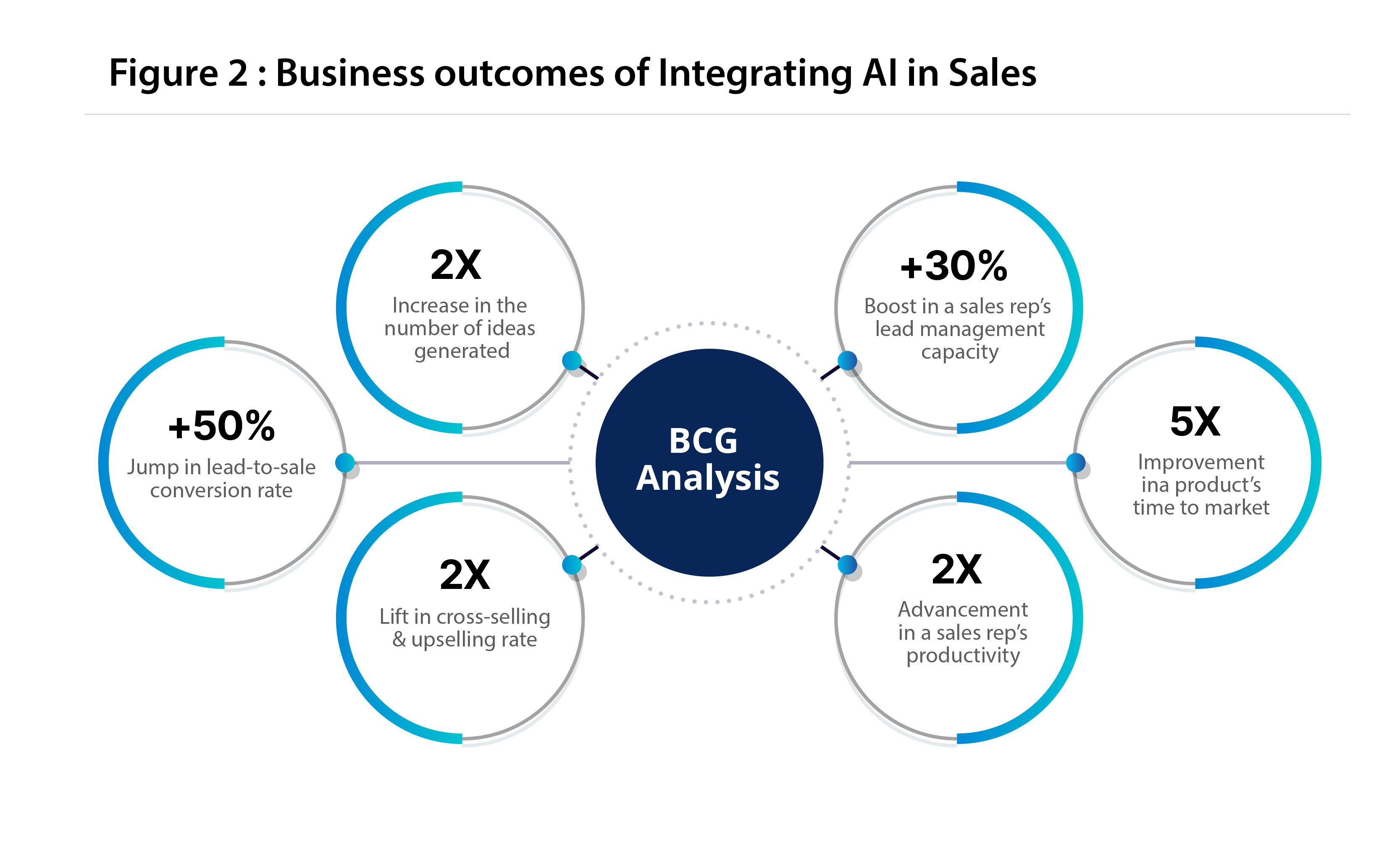
Figure 2: Business outcomes of Integrating AI in Sales
Bringing Gen AI to Life in the Customer Journey:
There are many Gen AI-specific use cases across the customer journey that can drive impact.
Figure 3, highlights the Gen Ai use cases from Sales perspective across the sales funnel from initiation to post execution
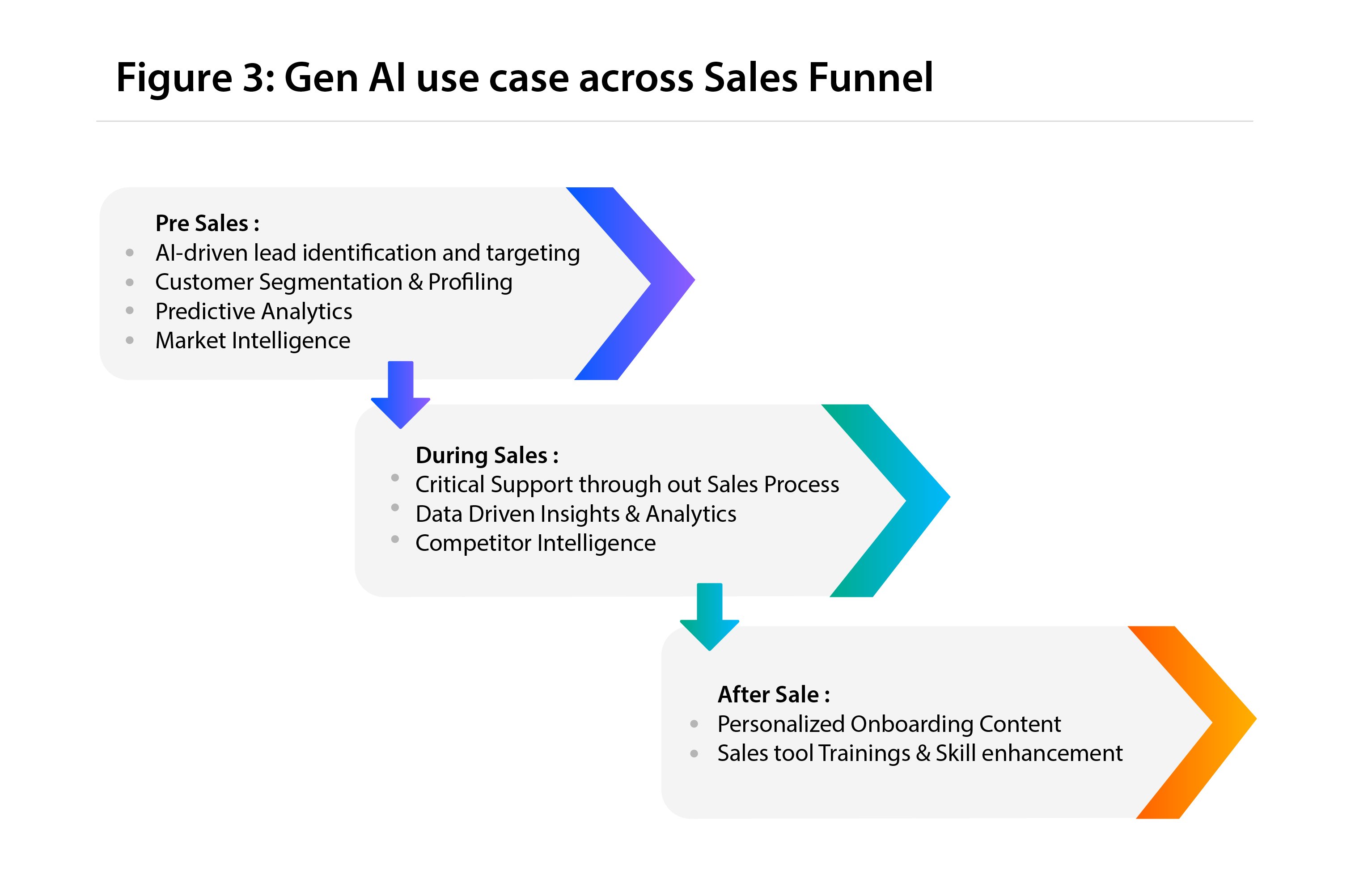
Figure 3: Gen AI use case across Sales Funnel
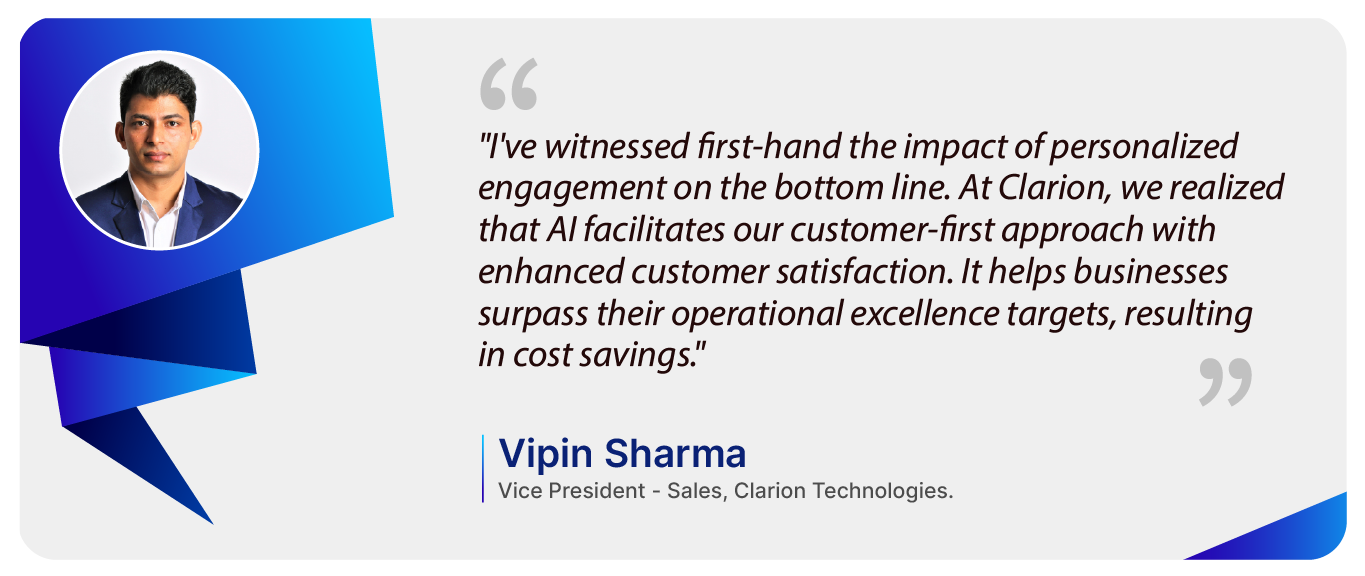
Global Sales Outlook towards AI
The adoption of AI in sales is on the rise, driven by its ability to unlock new opportunities and optimize existing processes. McKinsey research suggests that a significant portion of current sales-team functions could be automated with the help of AI, leading to increased efficiency and productivity.
In a McKinsey Survey across commercial leaders from different industries, respondents anticipated at least moderate impact from each use case suggested (Figure 4). Particularly, enthusiasm is high for use cases in the early stages of the customer journey—lead identification, marketing optimization, and personalized outreach.
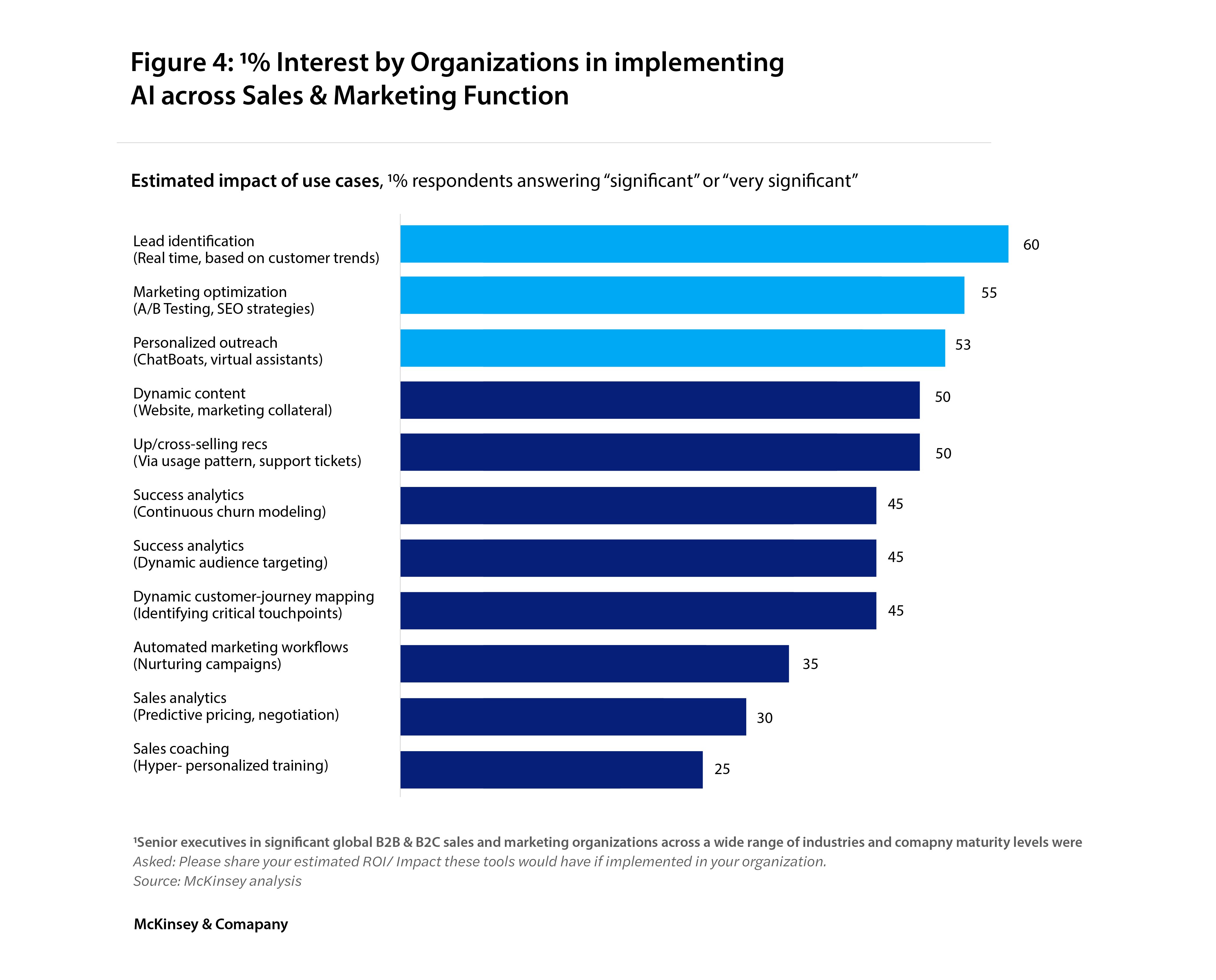
Figure 4: % Interest by Organizations in implementing AI across Sales & Marketing Function
Two key Areas of Focus for AI in Sales:
- Sales Lead Identification: AI-powered lead identification is revolutionizing traditional sales approaches by leveraging advanced algorithms to analyze vast datasets and identify high-potential leads. AI enables optimization of lead generation efforts, reducing manual effort, and enhancing lead conversion rates.
Traditional vs. AI Approach:
.jpg?width=4525&height=783&name=TABLE_1%20(1).jpg)
Business Outcomes for Sales Heads
- Increased lead conversion rates.
- Cost savings in lead generation efforts.
- Enhanced sales team efficiency.
Hyper-personalized customer engagement, facilitated by AI, has become a cornerstone of successful sales strategies. By analyzing customer behavior, preferences, and demographics, AI empowers sales teams to deliver tailored messaging and content that resonate with individual customers.
Traditional vs. AI Approach

Business Outcomes for Sales Heads and CMOs
- Enhanced customer engagement.
- Increased conversion rates.
- Strengthened customer relationships.
Harnessing AI for Sales at Clarion Technologies
Clarion Technologies is focusing on the integration of AI into its sales strategies, setting new standards for customer engagement and satisfaction. By adopting advanced tools such as Apollo AI, the company is refining its approach across all stages of the sales process.
- Targeted database research is enhanced with AI, utilizing filters like Geography, Industry, and intent to pinpoint potential clients.
- Real-time coaching through platforms like Trellus elevates call effectiveness.
- While AI-enabled videos from Loom significantly improve engagement and response rates.
- Furthermore, Apollo.io streamlines communication, ensuring messages are timely and relevant.
- The use of AI extends to analyzing script adherence and sentiment during presentations, ensuring every interaction is optimized.
- Post-presentation, AI-driven follow-ups with personalized emails and content underscore Clarion's commitment to tailored customer experiences.
Conclusion
The integration of AI into sales and marketing operations offers immense opportunities for driving growth, enhancing customer experience, and improving overall efficiency. By leveraging AI for sales lead identification and personalized outreach, organizations can stay ahead of the competition and achieve sustainable success in today's digital-first world. As CXOs, it's imperative to embrace AI technologies and harness their full potential to win in sales and marketing.



